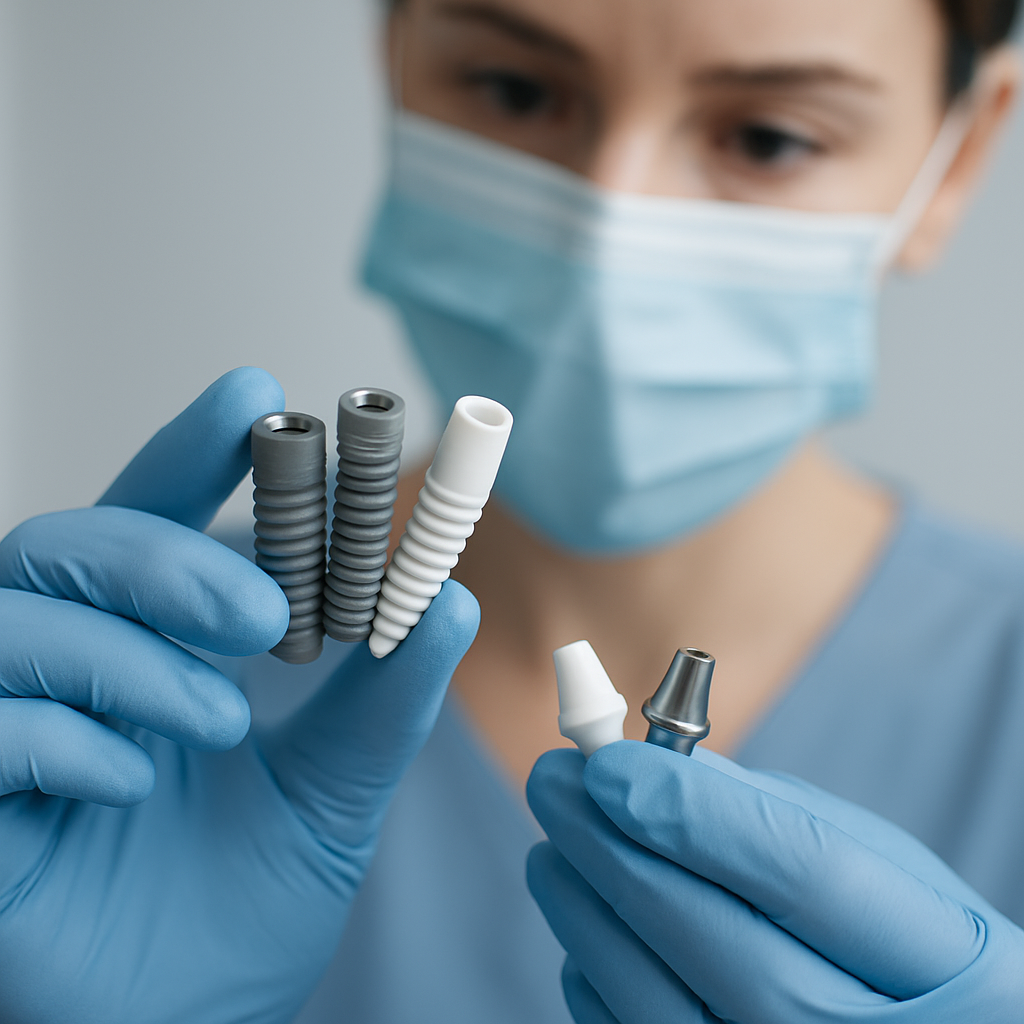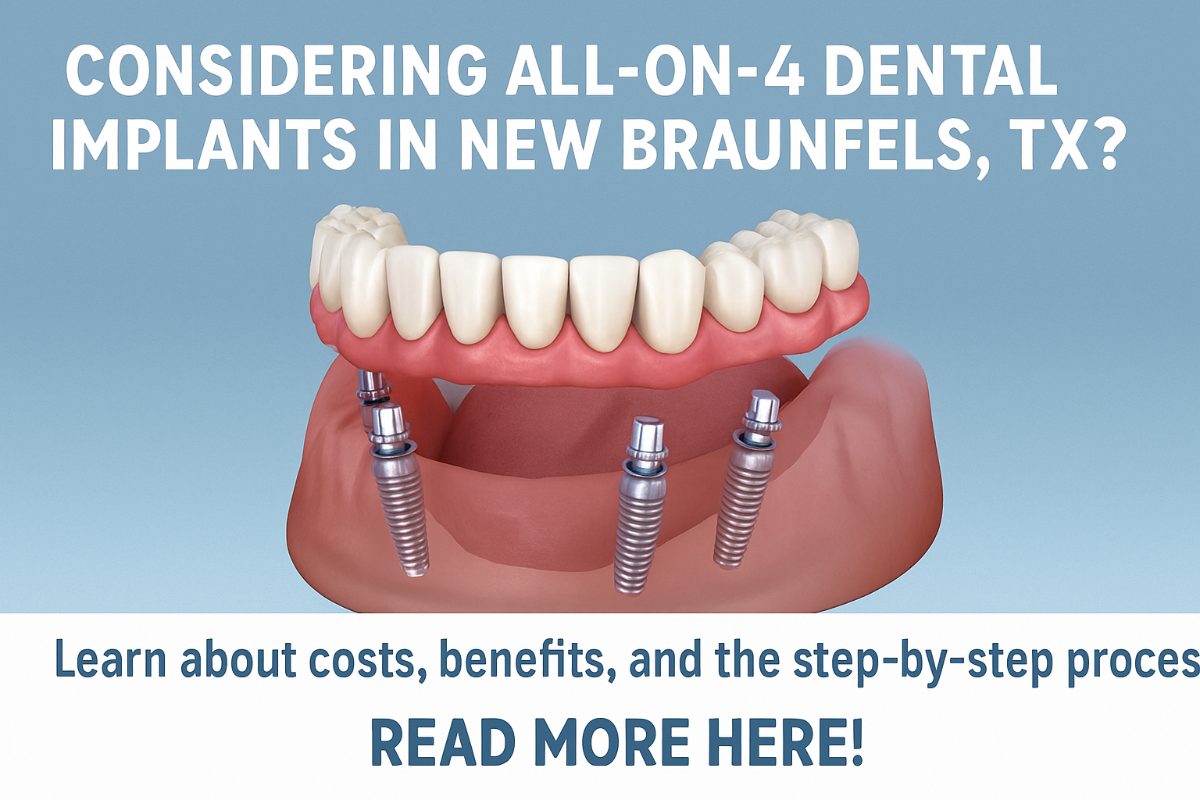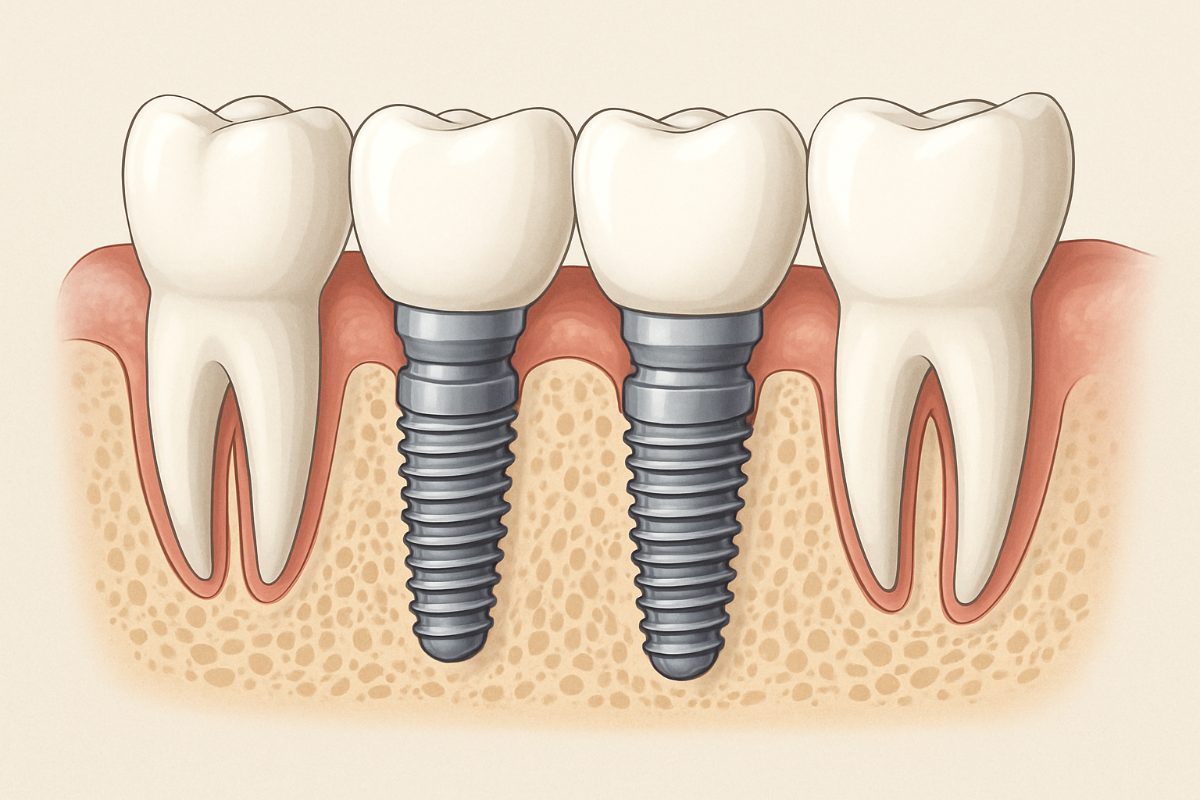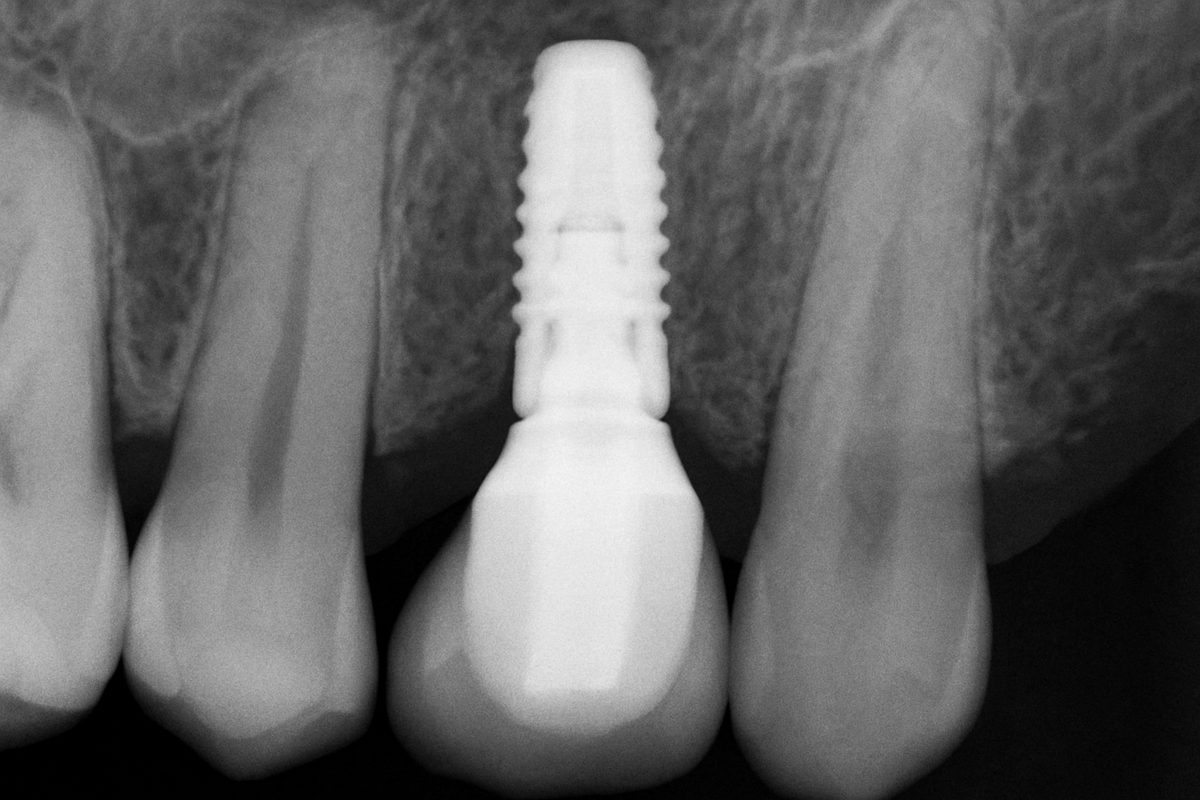Dental Blog - Greater San Antonio
Tips, Facts, And The
Latest In Dentistry

Dental Implant Materials: The Complete Guide

Dental implant material matters for strength, appearance, and long-term success. Choosing the right dental implant material affects how well the implant bonds to bone, how natural it looks under the gum, and whether you’ll face reactions or maintenance issues. This guide explains common materials, how they perform, cost and care, and the questions to ask so you can make an informed choice about dental implant material.
Common Dental Implant Materials
Titanium
Titanium is the most used dental implant material because it reliably fuses with bone (osseointegration), is very strong, and lasts many years. It’s used for single-tooth implants, multiple implants, and full-arch restorations. Titanium implants have decades of clinical data supporting their success.
Zirconia (Ceramic)
Zirconia is a metal-free ceramic that appeals for front-tooth aesthetics and patients wanting a non-metal option. It’s white, which can help with gum appearance, and is strong, though historically less flexible than titanium. Zirconia works well for single implants and select cases, but candidacy depends on bite forces and clinical needs.
Other Materials & Coatings
Manufacturers use titanium alloys and surface coatings (roughened textures, plasma-sprayed layers, or bioactive coatings) to speed bone bonding and reduce healing time. New materials and experimental surfaces aim to improve integration and lower infection risk. These options are meant to enhance performance, not replace proven base materials.
How Material Impacts Success, Appearance, and Health
Osseointegration and Long-Term Stability
Different materials bond to bone differently. Titanium’s surface encourages bone cells to attach and grow, giving long-term stability. Coated implants can improve early bonding. Good osseointegration lowers the chance of implant failure and supports chewing forces over many years.
Aesthetics and Gum Response
Material choice affects how the gum and tooth look. Titanium can sometimes show a grayish tint near thin gums, while zirconia can look more natural under the gumline. For front teeth, ceramic options may give a better cosmetic result. Gum health and tissue thickness also influence the final appearance.
Biocompatibility and Allergies
Most patients tolerate titanium well, but rare metal sensitivities or aesthetic concerns lead some to choose metal-free options. Corrosion is minimal with modern implants, but if you have a known metal allergy, discuss zirconia or alternative solutions with your dentist.
How Dentists Choose the Right Dental Implant Material
Patient Factors
Dentists consider bone quality, gum thickness, smile line, medical history, and patient preference. If you want a metal-free option or have thin gums, zirconia might be discussed. Strong bite forces or limited bone may favor titanium.
Procedure Factors
Single-tooth implants, bridges, and full-arch restorations each have different demands. Titanium is versatile for all types, while zirconia is often chosen for single anterior teeth. Complex restorations may use specific implant systems chosen for predictable outcomes.
Cost, Longevity, and Maintenance
Titanium implants tend to be cost-effective and have a long record of success, often lasting decades with good care. Zirconia can be more expensive up front and may have different long-term data, though results are improving. Maintenance is similar: good oral hygiene, regular dental visits, and monitoring the implant site. Ask about any warranty or follow-up protocol your dentist offers.
Questions to Ask About Dental Implant Material
Before treatment, ask clear questions so you understand the choice. – Which dental implant material do you recommend and why? – What are the risks and benefits of titanium versus zirconia for my case? – Do you use coated implants or custom abutments? – What is the expected lifespan and follow-up schedule? – How will this choice affect the look of my smile?
Our Approach to Choosing Implant Materials
We use evidence-based choices focused on durability, patient comfort, and cosmetic outcomes. Material recommendations are personalized based on your health, smile goals, and clinical needs.
Conclusion & Next Steps
Choosing the right dental implant material is key to a stable, natural-looking result. Talk with your dentist to review options and get a personalized recommendation. Schedule a consultation to discuss which material suits your situation best.





